583. Who might be Kentucky's next Prince of Wales?

The current Prince of Wales is Charles, eldest son of the reiging Queen of England, Elizabeth II. Since 1301, that title has, for the most part, been bestowed on the "next in line" to the British throne. Great Britain's "next" Prince of Wales will presumably be the eldest son of Prince Charles, His Royal Highness Prince William (at right), who I understand goes by the nickname of Wills.
In Kentucky, we do not have "heirs to the throne." We do have lines of succession for our highest office, that of governor. Earlier today, blogger Jacob Payne posted an entry over at PageOneKentucky raising the question of who would succeed Lieutenant Governor Dan Mongiardo should he be elected to the office of United States Senate, an office he is this year seeking for the second time. It is a purely academic question.
I'm not sure why Mr. Payne raises the question. He, like me, is supporting Jack Conway against the sitting lieutenant governor in that race and maybe he was trying to send up a warning flag - "if you elect Dan Mongiardo, Kentucky's Constitution says his successor as lieutenant governor will be David Williams." David Williams, the Republican state senator who serves as President of the State Senate, is generally regarded in very poor terms amongst Kentucky's Democrats and more than a few of Kentucky's Republicans. He isn't quite Darth Vader as former Vice President Big Dick Cheney has came to be known, but he is the greatest legislative stumbling block to Kentucky progress to be found anywhere in the Commonwealth. He (arguably) is a resident of Burkesville, Kentucky, an idyllic little town in a sweeping curve of the Cumberland River, in a county named for the river, at the intersection of KY61 and KY90. Mr. Payne correctly cites to two sections of Kentucky's adopted-in-1891 Constitution which might lead one to believe that Senator Willams could possibly become Lieutenant Governor Williams should Lieutenant Governor Mongiardo become United States Senator Mongiardo. Let me assure that while the second idea is a distinct possibility, the first is not.
Mr. Payne's posting offered me an opportunity to respond with a lesson on Kentucky's governors who have served without a lieutenant governor, and in doing so, answering Mr. Payne's purely academic question of who might be Kentucky's next Prince of Wales. I've copied below my response (which is of course my work) from Mr. Payne's blog. It is a short history lesson on vacancies in the office of Lieutenant Governor of Kentucky. I'm sure this is something you may have learned in an 8th grade Core class in that section on Kentucky History. Hopefully, it answers the question Mr. Payne asks. My (corrected) response is:
Our state has not, to my knowledge, ever provided for the filling of the office of lieutenant governor should it become vacant, with the exception of one short period of time in 1834 and/or 1835.
I’m not sure why it happened then if indeed it actually did, but the person who is sometimes referred to as the lieutenant governor during that time, James Guthrie of Louisville (at left), was actually President of the State Senate. Nonetheless, his name sometimes appears as one of Kentucky’s lieutenant governors.The last acknowleged “appointment” of a lieutenant governor (and as far as I can tell the only time such an event has happened) occurs after 1868 when John Larue Helm (for whom Larue County may have been named) died and Lt. Gov. John Stevenson succeeded to the governor’s office. Stevenson served almost the entire term without a lieutenant governor. In 1871, Stevenson was appointed to the U. S. Senate, leaving both top offices vacant. Preston Leslie (for whom Leslie County was named and who was later appointed the Territorial Governor of Montana), was already running for governor at the time, and was also the President of the Senate. Under the terms of the Constitution, just as you cite to above at Section 85 of the present Constitution, the President of the Senate does not succeed to the #2 spot, but rather in the absence of a #2, to the #1 spot. Leslie (above right) was then elected to a term in his own right.
Since that time, several men have served as governor during periods where there was no lieutenant governor. The most recent was in 1975. Governor Wendell Ford was elected to the United States Senate in the last year of his term and his lieutenant governor, Julian Carroll, served out the term without a lieutenant governor.
This same scenario was repeated in earlier times: in 1950-51 when Lawrence Wetherby (one of several Jefferson Countians to serve as governor) served out for the former governor/new senator Earle Clements; in 1939 it was Keen Johnson for A. B. “Happy” Chandler; in 1919 it was James Black for A. O. Stanley; and in 1900-01 it was J. C. W. Beckham for the assassinated (and perhaps questionably elected and seated) William Goebel, the only governor of any state ever assassinated.
All of these men ran for governor in the subsequently next election, and with the exception of Black, all were elected. Black lost to Ed Morrow.
So, we needn’t be concerned about who will be lieutenant governor should the current one get elected to the senate. If that happens, we should only worry about the current governor finishing the term so as to avoid the possibility of the Burkesville Bully ascending to the top spot.
There are lots of things to worry about in Frankfort these days. Who is in the succession line isn’t one of them.



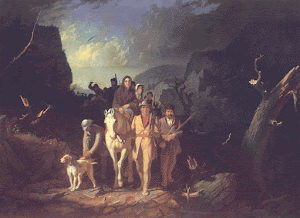












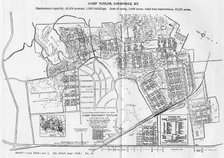
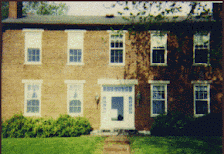

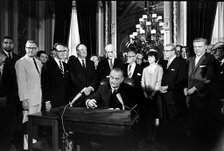

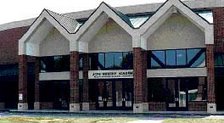


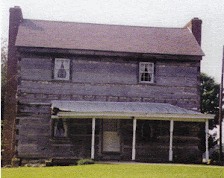
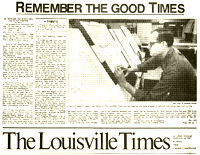
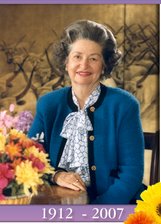
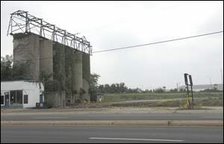
2 comments:
If Dr. Dan were to win, can you remind us all how long we need to hold our breath before Gov. Beshear's first term is done?
Jeff- thanks for acknowledging that the election of William Goebel was not a model of democracy in action. Too many people remember that he was assassinated, but not what led up to the event. Calling Goebel the duly elected Governor of Kentucky is like saying Mahmoud Ahmadinejad or Hamid Karzai were duly elected.
Post a Comment